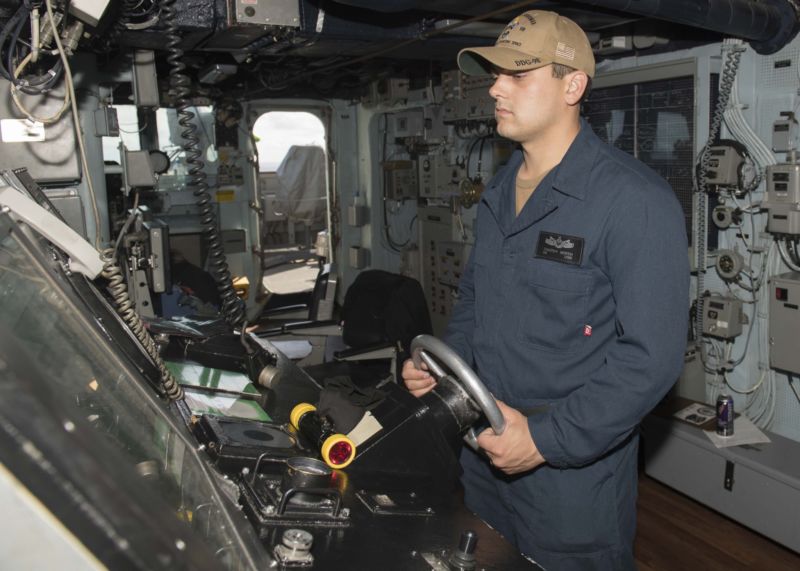The US Navy says no to touchscreens—maybe automakers should, too

Enlarge / Seaman Timothy North stands watch as the helmsman on the bridge of the Arleigh Burke-class guided-missile destroyer USS Forrest Sherman (DDG 98). Forrest Sherman is participating in a sustainment exercise with the Harry S. Truman Carrier Strike Group, an integrated, comprehensive exercise designed to ensure the strike group is ready to meet all mission sets and carry out sustained combat operations from the sea. (U.S. Navy photo by Mass Communication Specialist 3rd Class Raymond Maddocks/Released) (credit: Specialist 3rd Class Raymond Maddocks | US Navy)
The US Navy has had enough of touchscreens and is going back to physical controls for its destroyers, according to a report last week in USNI News. Starting next summer the Navy will refit its DDG-51 destroyer fleet with a physical throttle and helm control system. The effort is a response to feedback the Navy solicited in the wake of a pair of fatal crashes involving that class of ship during 2017.
In June of that year, seven sailors were killed when the USS Fitzgerald collided with the MV ACX Crystal, a container ship. In August, 10 US sailors were killed when the USS John S McCain hit another container ship, the Alnic MC.
On August 5, the National Transportation Safety Board published its report into the USS John S McCain incident. Although the agency found that the probable cause was "a lack of effective operational oversight of the destroyer by the US Navy," it also criticized the ship's complex throttle and steering touchscreen controls.
Read 3 remaining paragraphs | Comments